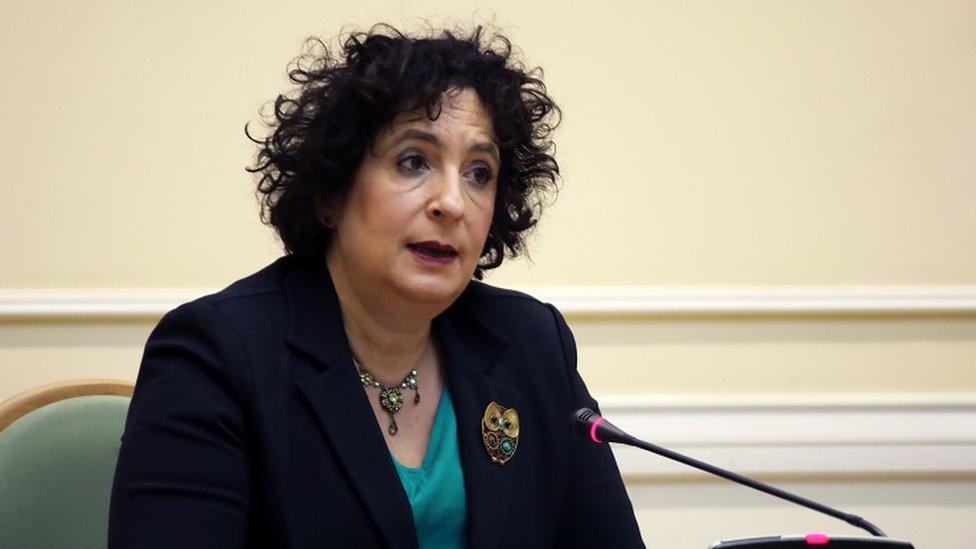UK ambassador: 'Hard to be critical' of Brits in Ukraine
- Published
Watch: Melinda Simmons, the UK's ambassador to Ukraine reacts to returning to the war-torn country
It is hard to be critical of Britons who have travelled to fight in Ukraine, the UK's ambassador has said.
Speaking to the BBC after returning to Kyiv, Melinda Simmons said she understood that Ukraine's defence is based on values that many Brits share.
The Foreign Office advises against all travel to Ukraine because of the lethal danger posed by the Russian invasion.
Since it began, one British national has been killed and four captured while fighting or providing aid there.
"Our travel advice is very clear," the British ambassador said to BBC Radio 4's World at One programme. "Ukraine is not a safe place to be. It advises against all travel."
Asked why she is not more critical of people who make the choice to fight in Ukraine, Ms Simmons said: "I think it quite hard to be critical of people who make choices to do this."
She described Ukraine's defence against Russia as an "existential fight" based upon shared principles that many in the UK hold dear.
"Some people interpret that as wanting to come and fight or come to a dangerous area to help deliver humanitarian aid," she said, "I'd rather they didn't because it is not a safe country".
The British nationals captured by Russian forces include two aid workers who were detained at gun point in southern Ukraine last week.
One of those workers, Paul Urey, has since appeared on Russian television to explain his decision to come to Ukraine while wearing handcuffs. It is not clear whether he was speaking under duress.
After watching the video his mother Linda Urey said she didn't believe what he was saying: "I know my son like every mother, and this is not him being natural."
A further two British men, Aiden Aslin, 28, and Shaun Pinner, 48, are being held by Russian forces after being captured while defending Mariupol.
And last week the Foreign Office announced that a UK national had been killed in the conflict.
It says the Russian invasion of Ukraine poses a "real risk to life" and advises against all travel there for any reason.
Those wanting to help should instead consider donating or taking in a Ukrainian refugee, the Foreign Office guidance suggests.

War in Ukraine: More coverage

'Shock upon shock'
After leaving the Ukrainian capital in late February, the British ambassador Melinda Simmons said her return to her home on Friday was "incredibly emotional."
Driving back into the capital Ms Simmons passed by "bombed out playgrounds, bombed out schools, hospitals, burned out trees, twisted metal in farmland," she told broadcasters.
It showed that the Russian military was deliberately targeting civilian sites, she said.
"Right from the beginning this was about hitting the Ukrainian nation. It wasn't just about taking out the military capability."
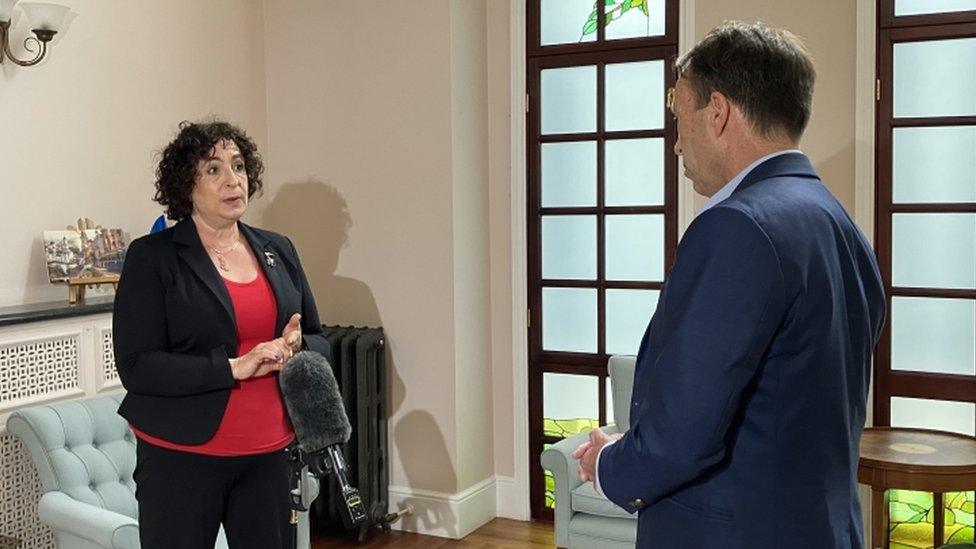
The British ambassador to Ukraine, speaking to the BBC's Ben Brown after her return to Kyiv on Friday
Ms Simmons has urged other foreign ambassadors to also come back to the capital. "It's massively important for the work," she says, as well as being a psychological boost for the Ukrainians she works with.
The French, Italian, and Spanish ambassadors are among those also to have already returned to the capital, and yesterday the United States said it hoped its embassy in Kyiv would resume operations by the end of May.
The Ukrainian capital is still vulnerable to Russian air strikes, and last week Moscow made threats against Western diplomats returning to the city.
Russian forces were primed to carry out strikes against "decision-making centres in Kyiv," Moscow officials said, adding that the presence of foreign advisers in those sites "will not necessarily be a problem to Russia deciding to take retaliatory action".
When asked by if Ukraine can ultimately win this war, Ms Simmons said the country had been underestimated.
"They have all the determination that is needed and all the focus that is needed to do this," she said. "The challenge for them is to see this through."
Related topics
- Published29 April 2022
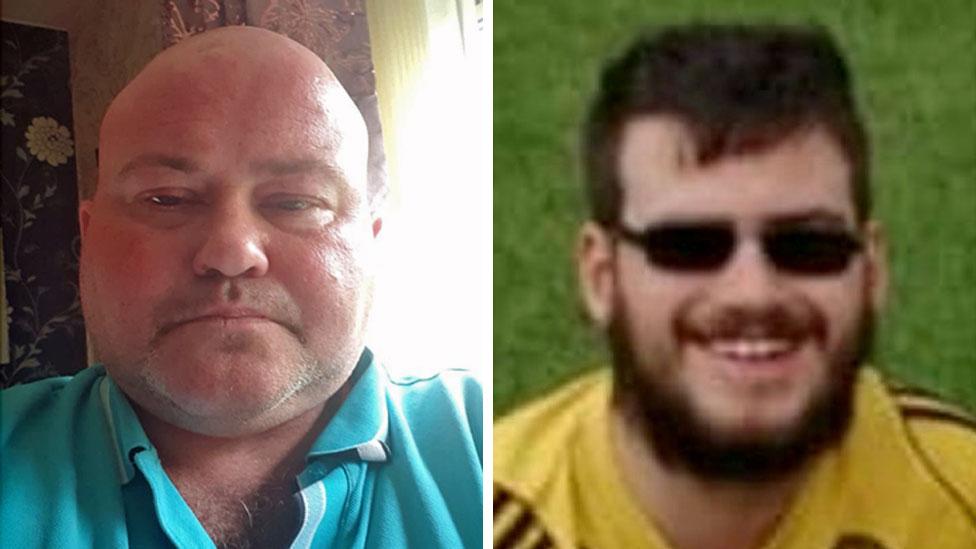
- Published28 April 2022
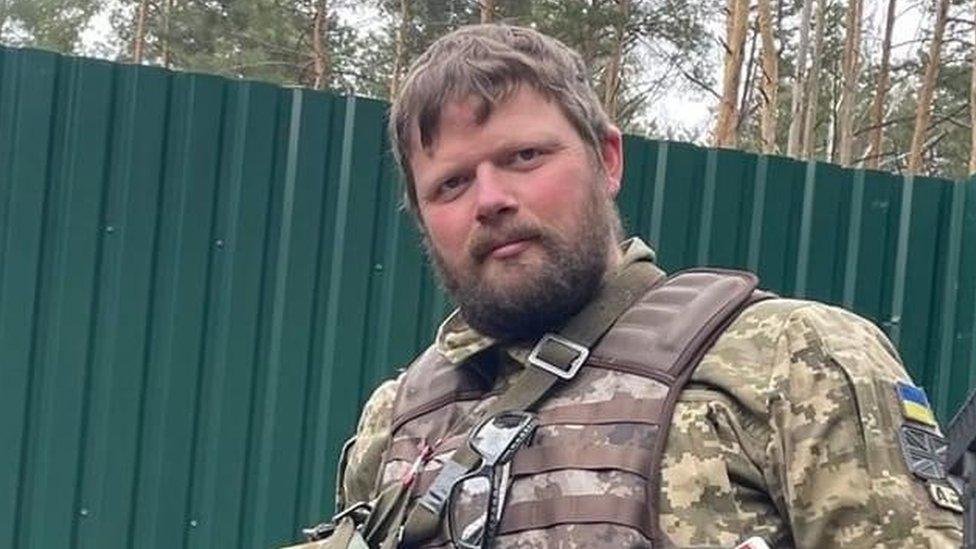
- Published21 April 2022
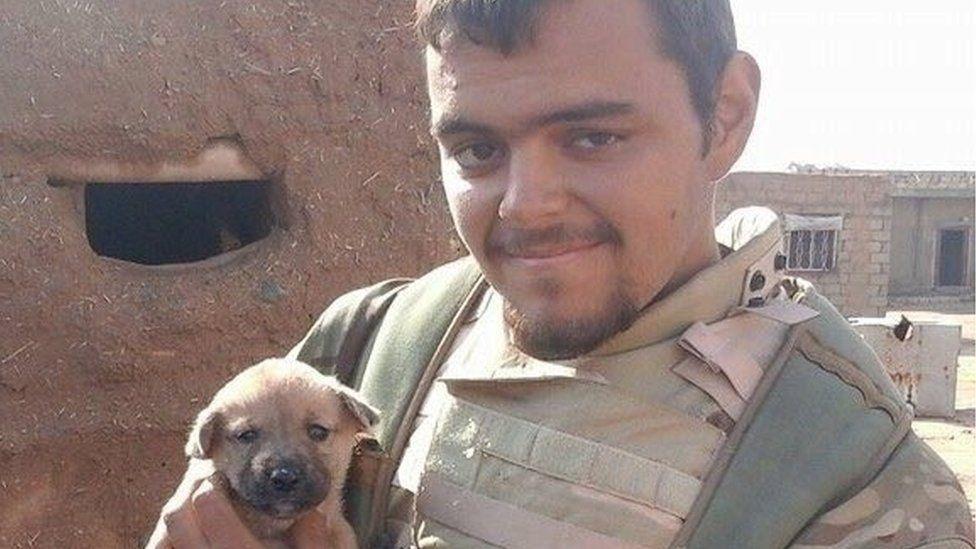
- Published1 May 2022
